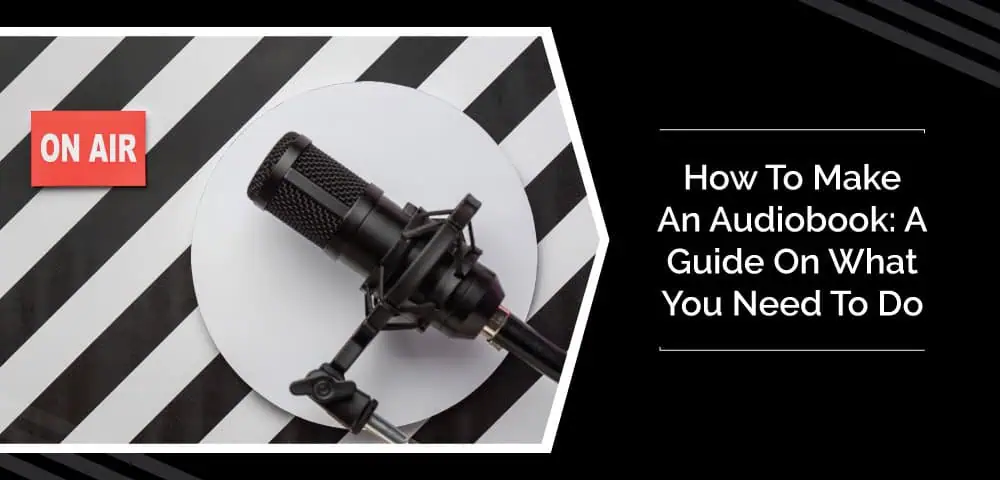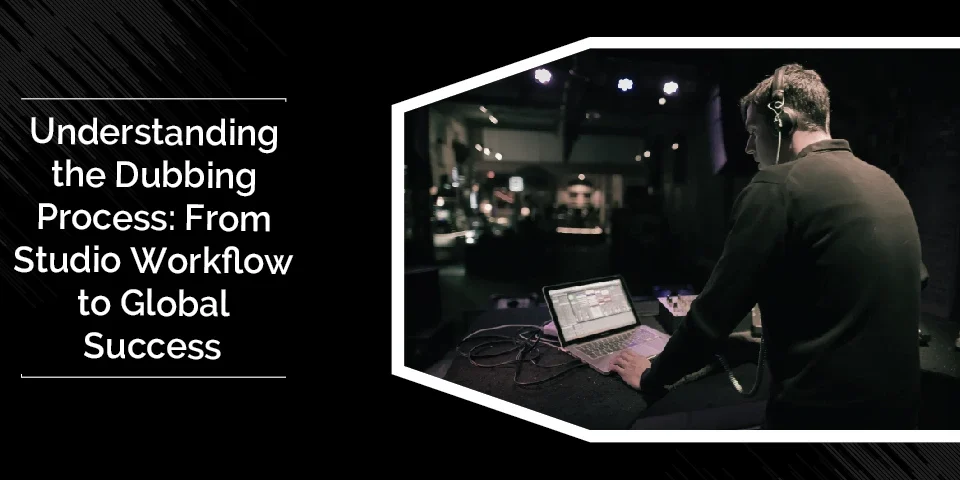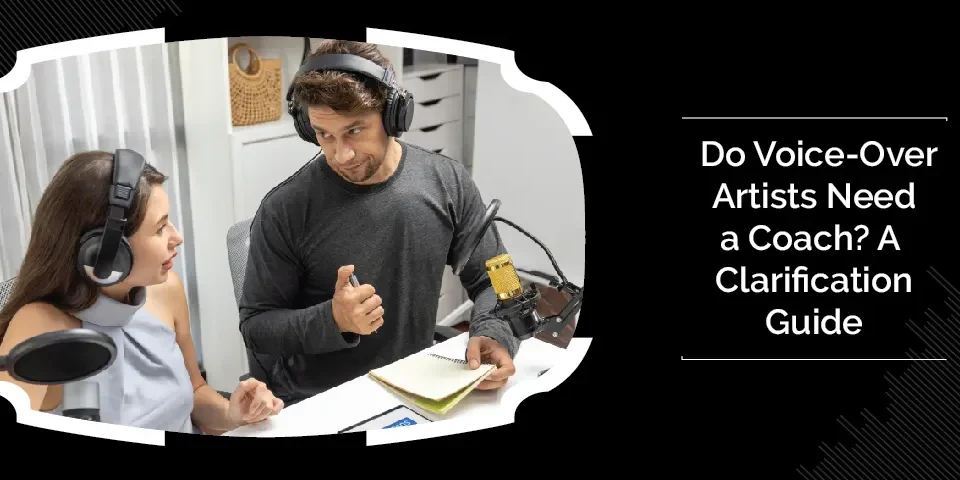
8 Essential Tips For Voice-over Artist Collaboration
February 28, 2025
Top 10 Podcast Trends In 2026 That You Should Know Of
March 18, 2025Do you know the global audiobook industry is estimated to grow at a CAGR of 26.2% from 2024 to 2030? The audiobook industry is booming and this is the right time to do it.
Consumers are slowly inclining towards audio content. This gives authors around the world the ability to reach a broader audience. Creating an audiobook also gives more accessibility and versatility to authors’ work. Are you also an author interested in creating an audiobook? This blog is just for you! In this guide, we’ll cover the important steps of how to make an audiobook, from ideation to publication. Read the steps below.
Contents
A] Pre-Production Stage
The first steps are pre-production steps that involve everything from ideation to planning.
Evaluate Your Book
Before you go ahead and turn your book into an audiobook, analyse if the content of your book suits the audio format. Usually, novels and memoirs go well with the audio format. However, if your book has too many visuals like charts or illustrations, you may need to make adjustments to it, or it may not be ideal. Plan on how your book will connect with listeners in audio form and whether it can deliver the intended message through narration. If you know what is an audiobook, you must also know how it should connect to the listeners.
Plan The Recording Time And Process
Mapping out a solid plan makes the production process of your audiobook very smooth. First of all, decide on the total length. Consider that narrators read about 9300 words an hour; that makes it 60,000 words of audiobook in 6.5 hours. However, keep in mind that the audiobook recording process may take longer than expected, as retakes, revisions, and breaks are included. Also, decide on the type of studio you want to record the audiobook in. Whether you want a professional studio specifically designed for audio books that gives you exactly what you need or a generic one that gives a wide range of options, both options have their own pros and cons. Deciding on all these factors will help you stay aligned with your budget and quality expectations.
Find a Suitable Voice-Over Artist
When you have decided on the studio setup, it is time to find a suitable voice for your audiobook. Listeners like to listen to books that have an interesting way of narrating and carrying emotions. The narrator has the power to bring your audiobook to life. If you do not want to narrate it yourself, you can hire a professional voice-over artist in Mumbai whose tone, style, and pace align with your content.
For example, if your book is fiction-based, you would want to hire a narrator who can make different character voices. On the other hand, if your genre is non-fictional, you would benefit from hiring someone with clear and authoritative voice delivery.
B] Production Stage
Then comes the production stage. Here’s how to create an audiobook:
Decide The Right Recording Studio
As we mentioned earlier, deciding on your studio is an important part of creating an audiobook. Figure out how to record an audiobook. Ensure that the setup is proper to record high-quality audio.
A professional studio will have modern equipment and soundproofing. It will minimise the background noise in your audiobook and will result in crisp recordings.
However, if you don’t have the budget to book a professional studio, create a home studio. You can buy a good quality microphone, headphones, and acoustic treatments to eliminate background noise and echo. Regardless of where you are recording, ensure that the audio quality is up to the mark and requires minimal post-production editing.
Record Your Audiobook
When all your preparations are done, it is time to start recording your audiobook. If you have a voice-over artist, assist them in maintaining a consistent pace and tone throughout the narration. The end goal is to deliver a quality listening experience. To ensure quality, record in manageable session lengths. There shouldn’t be vocal fatigue, as it can affect performance quality.
Whether you are narrating it yourself or have a professional narrator, hydrate regularly. Take regular breaks. Engage your audience by adding appropriate emotions to your voice without overacting.
C] Post-Production Stage
When you have the draft recording ready, it is time to make final edits and revisions.
Editing And Cutting
Once the recording is complete, the next step is editing. This phase involves removing mistakes, long pauses, and any unwanted noises. Consistency in volume levels and pacing is essential for a professional sound. Utilising digital audio workstations (DAWs) like Audacity or Adobe Audition can facilitate precise editing. If you’re unfamiliar with audio editing, hiring a professional editor can ensure your audiobook meets industry standards. If you want to understand more about editing, you must read What Is Audio Production And How It Is Done?
Mastering the Audio
Mastering is the final polishing of your audiobook, ensuring uniformity across all chapters. This process includes adjusting, equalising, compressing, and limiting to achieve a balanced and clear sound. Proper mastering ensures that your audiobook meets the technical requirements of platforms like Audible and Apple Books. Given the technical nature of mastering, collaborating with an experienced audio engineer is often beneficial.
Publishing And Promotion
With a mastered audiobook, you’re ready to publish. Platforms such as Audible, Apple Books, and Google Play Books are popular choices for distribution. Each platform has specific submission guidelines, so adhere to their requirements to ensure acceptance. Once published, promote your audiobook through various channels:
- Social Media: Leverage platforms like Facebook, Twitter, and Instagram to reach your audience.
- Author Website: Feature your audiobook prominently on your site with purchase links.
- Email Newsletters: Inform your subscribers about the audiobook release and provide exclusive content or discounts.
Engaging with audiobook bloggers and reviewers can also enhance visibility and credibility.
Conclusion
Entering the audiobook market is a strategic move to diversify your offerings and reach a wider audience. By meticulously planning and executing each stage—from evaluating your book’s suitability to effective promotion—you can produce a high-quality audiobook that resonates with listeners.
Revenue in the Audiobooks market worldwide is projected to reach $9.84bn in 2026. As the audiobook industry continues its upward trajectory, now is an opportune time to embrace this dynamic medium and share your narrative in a compelling audio format.
Are you ready to start your audiobook creation journey today and connect with a global audience? Do you have all the other skills but don’t know how to narrate audiobooks? Reach out to a professional voice-over artist today. Get in touch for more info and get a quote.

Peter Abraham
Peter Abraham is a versatile voice-over artist based in Mumbai working in the voiceover industry since 2009. With a passion for storytelling and meticulous attention to detail in every project, he brings scripts to life with his captivating voice and professional delivery, exceeding client expectations. Whether it's a commercial or an audiobook, Peter specializes in a wide range of voice-over work, ensuring the highest quality.




